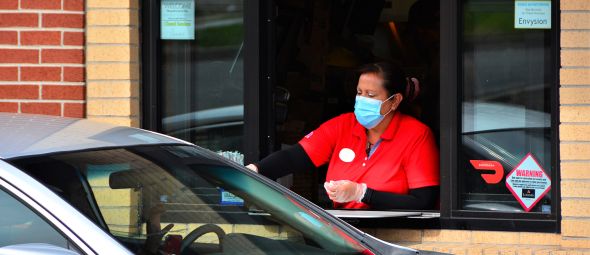Overview
Human capital development—or people’s ability to acquire skills and knowledge through education and training—advances workers’ economic opportunity and strengthens employers and the economy. Yet the complex landscape of skills and training is fragmented across institutions of higher education, public and private providers, and other credentialing programs. More importantly, human capital development alone does not lead to greater economic mobility, as many workers continue to face barriers to reaching their full potential in the labor market.
Working Knowledge

Skills and training
April 08, 2022
Article
How Randomized Evaluations Build Evidence to Inform Workforce Program Design, Policy, and Investment
Four takeaways from J-PAL North America and WorkRise joint panel on the power of randomized controlled trials in generating evidence to inform and guide decisionmaking and investment in workforce training.

Job search and matching
April 08, 2022
Changemaker Q&A
How “Netflix for Jobs” Is Unlocking Economic Mobility: A Q&A with Scott Jensen
Chief executive officer and vice president of external affairs for Research Improving People's Lives shares insights on how data, science, and technology can identify promising employment and training opportunities for jobseekers looking to earn more or gain new skills.

Employer practices
January 25, 2022
Article
New and Noteworthy: Research on predictable scheduling laws, postsecondary decisionmaking among youth, and more
New and Noteworthy highlights new research and data to inform policies, practices, and programs designed to strengthen workers’ economic security and pathways for mobility in the US labor market.
Research
Skills and training
Executive Summary
November 15, 2023
The Workforce Almanac: A System-Level View of US Workforce Training Providers
This working paper describes the Workforce Almanac, a first-of-its-kind effort to understand workforce training at a systemwide level. The Almanac is an open-source directory of nearly 17,000 workforce training providers across the United States. This database offers the most comprehensive view to date of US workforce training providers and includes information such as provider names, locations, and types.
Grantee Research
Skills and training
Executive Summary
April 03, 2023
Navigating Public Job Training
Right now, more than 75,000 Eligible Training Provider (ETP) job programs are eligible for funding under America’s primary federal workforce development law, the Workforce Innovation and Opportunity Act (WIOA). How well do these public investments prepare workers for high-quality jobs? In this analysis, authors combine training provider and program data from the US Department of Labor with performance records and occupational data to study the types of providers receiving WIOA funding and the kinds of jobs for which they offer training. The report also reviews websites for all 50 states to understand how easily potential job trainees can access information on these programs.
Grantee Research
Social determinants of work
Report
March 15, 2022
Implications of Providing Child Care Assistance to Parents In Education and Training
New WorkRise research uses microsimulation to model a hypothetical policy scenario where more parents in education and training were eligible for and received public child care subsidies.
Grantee Research
Social determinants of work
March 15, 2022
Expanding Child Care Subsidies to Parents in Education and Training
A fact sheet summarizes findings from a new WorkRise report that models a hypothetical policy scenario where more parents in education and training were eligible for and received public child care subsidies.
Grantee Research
